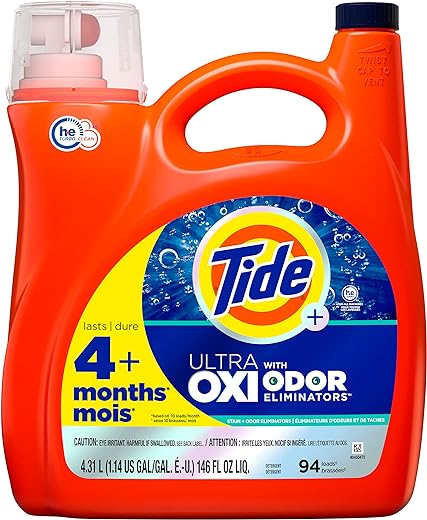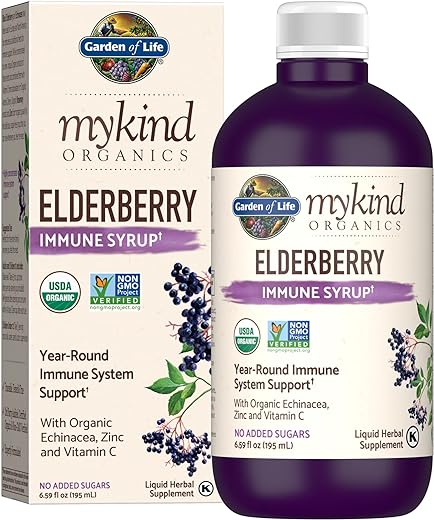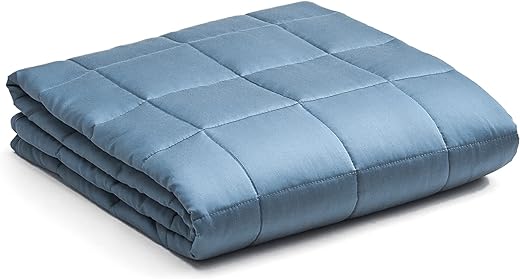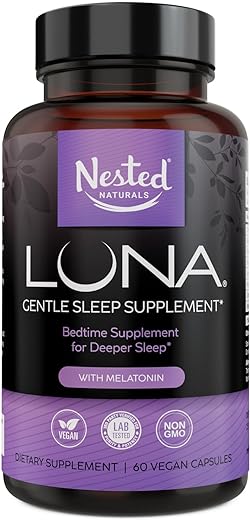Storing therapeutic herbs properly is crucial to maintain their efficacy, potency, and beneficial properties intact. Improper storage can lead to the deterioration of these herbs, reducing their effectiveness when consumed. Follow this step-by-step guide to ensure that you store your therapeutic herbs correctly and maximize their benefits.
Nature’s Healing Treats: Top Herbal Picks
Understand the Herbs
- Identify your therapeutic herbs: Gather all the herbs you have in your collection and make a list of each type.
- Research storage requirements: Find information or labels on each herb to determine their specific storage needs. Check online sources or consult herb guides for detailed suggestions.
- Follow proper storage guidelines: Store each herb according to its individual requirements, ensuring a long shelf life and maximum potency for your herbal remedies. Keep herbs away from moisture, sunlight, and heat to maintain their quality.
Choose the Right Containers
- Opt for airtight opaque containers to shield herbs from harmful light exposure. This helps maintain the herbs’ freshness and potency for longer periods.
- Make sure the containers have tight seals to prevent moisture and air from compromising the quality of the herbs.
Remember, choosing the right containers is essential in preserving the flavor and shelf life of your herbs.
Store in a Cool, Dark Place
- Place the herbs in an airtight container to protect them from moisture in a cool, dark location.
- Ensure the storage area is away from direct sunlight to prevent the herbs from losing their potency.
- Keeping the herbs away from heat sources will maintain their flavor and medicinal benefits properly.
Follow these steps, and you will ensure your herbs retain their quality for longer periods.
Label and Date
Label and Date:
Name each container with the herb’s name and the storage date. Assign a label clearly identifying the herb. Include the stored date on the label as well to ensure freshness tracking. Use: A permanent marker or sticky labels and place it on the container bottle.
Avoid Heat and Humidity
- Store the herbs in a cool, dry place.
- Keep them away from stoves, ovens, or direct sunlight.
- Use airtight containers to maintain freshness and flavor.
- Check regularly for any signs of moisture or spoilage symptoms such as mold or discoloration.
Organize Properly
- Arrange herbs in an orderly manner based on their usage frequency for easy access.
- Place the most frequently used herbs closest to your preparation area and the lesser-used herbs further away.
- Label all the herbs clearly and keep them tidy for quick and efficient cooking.
Check for Spoilage
- Inspect herbs routinely for mold, odd smells, or color changes.
- Discard any spoiled herbs immediately to prevent contamination.
Utilize Vacuum Sealing
- Vacuum seal food in bags or containers using a vacuum sealer.
- Ensure items are tightly sealed to prevent air from entering.
- Label each package with the date of sealing for easy organization.
- Store items in a cool, dry place for optimal preservation.
Rotate Stock
Use older herbs first to ensure that you maintain fresh supplies. Rotate your stock by placing newer purchases behind the older ones.
- For example, if you buy white pepper in bulk, use up the older batch first before tapping into the new bag you purchased.
- Similarly, if you have multiple jars of thyme, make sure to place the jar you bought first at the front so you remember to use it up first.
- By following this strategy, you’ll prevent herbs from going bad and always have the freshest ingredients on hand!
Final Thoughts on Herb Storage
Keeping therapeutic herbs in the right conditions will ensure they retain their potency and goodness for longer. Following these steps will help you get the most out of your herbs and make your remedies even more effective.
Essential Supplies
Herbal Storage Mastery: Maximize Potency
Unlocking the Power of Therapeutic Herbs: How to Make the Most of Nature’s Remedies
- Research and identify the therapeutic herbs that are safe and effective for beginners
- Start with one or two herbs at a time to understand their uses and benefits before incorporating more
- Consult with a knowledgeable herbalist or healthcare provider to ensure you are using the herbs correctly and in the right dosage
- Keep a journal to track your experiences with each herb, noting any effects, improvements, or side effects
- Gradually introduce different therapeutic herbs into your routine based on your individual needs and responses
Unlock the Healing Power of Nature(UnmanagedType Unlock the Healing Benefit of Nature)
What types of ailments can therapeutic herbs treat effectively?
Therapeutic herbs have been used for centuries to treat a wide range of ailments effectively. Some common ailments that therapeutic herbs can help with include insomnia, anxiety, digestive issues, muscle pain, and common cold symptoms. Additionally, herbs such as ginger, turmeric, and echinacea are known for their anti-inflammatory and immune-boosting properties. It’s important to research and consult with a healthcare professional before using any herbs for medicinal purposes to ensure they are safe and appropriate for your individual needs.
How important is it to consult with a healthcare professional before using therapeutic herbs?
Consulting with a healthcare professional before using therapeutic herbs is extremely important. Healthcare providers have the expertise to assess potential interactions with medications, health conditions, and individual circumstances. They can provide guidance on proper dosages and potential side effects, ensuring safe and effective use of herbal remedies. It is crucial to prioritize your health and well-being by seeking professional advice before incorporating any new treatments into your routine.
How should one go about choosing the right therapeutic herb for their specific health needs?
When choosing the right therapeutic herb for specific health needs, it’s important to consider several factors. Firstly, do proper research to understand the potential benefits and side effects of different herbs. Next, consult with a healthcare professional or herbalist who can provide guidance based on your current health status and any existing medical conditions or medications you may be taking. It’s essential to choose high-quality herbs from reputable sources to ensure safety and effectiveness. Lastly, start with small doses and monitor how your body responds to the herb before increasing the dosage. By being informed and cautious, you can find the right therapeutic herb to support your health needs effectively.
What are therapeutic herbs, and how are they different from regular herbs?
Therapeutic herbs are plants that contain medicinal properties which can aid in promoting health and healing in the body. These herbs are used for their specific therapeutic benefits which target various health conditions.
The main difference between therapeutic herbs and regular herbs lies in their intended purpose and use. While regular herbs are commonly used for culinary or aromatic purposes, therapeutic herbs are specifically chosen for the therapeutic effects they offer in supporting overall well-being and addressing specific health concerns.
Therapeutic herbs are often used in traditional medicine practices such as herbalism, naturopathy, and Ayurveda to alleviate ailments, boost the immune system, reduce inflammation, and promote overall vitality. These herbs are carefully selected and their usage is guided by their medicinal properties and potential interactions with the body.
In conclusion, therapeutic herbs stand out from regular herbs due to their targeted support for health and healing, making them a valuable resource in complementary and alternative medicine therapies.
How can therapeutic herbs be used to alleviate common health problems?
Therapeutic herbs have been used for centuries as natural remedies to help alleviate various health issues. The use of therapeutic herbs to improve health has gained popularity due to their reported benefits and minimal side effects compared to conventional medication. Herbs such as chamomile, peppermint, ginger, and turmeric have been known to help with common health problems such as digestion issues, headaches, inflammation, and stress. For example, chamomile can be brewed into tea to aid digestion and promote relaxation, while ginger can ease nausea and reduce inflammation. Peppermint is often used to soothe headaches and improve digestive issues. Turmeric, with its active ingredient curcumin, is believed to have anti-inflammatory and antioxidant properties. Incorporating these therapeutic herbs into one’s daily routine, either through teas, supplements, or in cooking, can be a natural and holistic way to support overall well-being and alleviate common health problems.
How can one ensure the quality and potency of the therapeutic herbs they are using?
To ensure the quality and potency of therapeutic herbs, one should consider the following factors:
- Source: Choose herbs from reputable and trustworthy suppliers who follow good manufacturing practices.
- Certification: Look for organic or other certifications which indicate high standards of cultivation and production.
- Storage: Properly store herbs in a cool, dry place away from direct sunlight to preserve their potency.
- Labeling: Check for clear labeling that includes the herb’s botanical name, place of origin, and expiration date.
- Testing: Look for herbs that have undergone quality testing for purity and potency by third-party laboratories.
Are there specific dosage guidelines to follow when using therapeutic herbs?
Yes, there are specific dosage guidelines that should be followed when using therapeutic herbs. It is important to consult with a healthcare provider, herbalist, or pharmacist before using any herbs to ensure the optimal and safe dosage for each herb. Dosage recommendations can vary depending on the individual, their age, health conditions, and the specific herb being used. Following recommended dosage guidelines will help maximize the benefits of therapeutic herbs while minimizing the risk of side effects. Consulting a professional will help ensure safe and effective use of these natural remedies.
Can therapeutic herbs be used to support mental health and emotional well-being?
Yes, therapeutic herbs can be used to support mental health and emotional well-being. Many herbs contain compounds that have been shown to have calming, mood-enhancing, or stress-reducing effects. For example, herbs such as chamomile, lavender, lemon balm, and passionflower are known for their soothing properties that can help alleviate anxiety and promote relaxation. St. John’s Wort has been studied for its potential benefits in treating mild to moderate depression.
It’s important to note that while therapeutic herbs can offer support for mental health and emotional well-being, they are not a replacement for professional medical advice or treatment. Anyone considering using herbs for mental health should consult with a healthcare provider to ensure they are safe and appropriate for their individual needs.

![[0]FoodSaver FM2435 Vacuum Sealer Machine with Bonus Handheld Vacuum Sealer and Starter Kit, Safety Certified, Silver](https://adventistmarket.com/wp-content/uploads/2024/02/0foodsaverfm2435vacuumsealermachinewithbonushandheldvacuumsealer.jpg)















Thank you for your thoughtful comment! Proper storage can indeed make a big difference in preserving the potency of therapeutic herbs. Investing in the right containers and vacuum sealing can go a long way in maintaining their quality. If you have any questions as you implement these tips, feel free to ask!
I’ve struggled with maintaining the freshness of my therapeutic herbs, especially in humid climates. Do you have any additional tips for combating humidity apart from avoiding it and utilizing vacuum sealing? I appreciate the advice in this guide and want to ensure I’m doing everything I can to store my herbs properly.
After following these steps and utilizing vacuum sealing, I noticed a significant difference in the potency of my herbs. They retained their aroma and effectiveness for a longer period. I’m glad I came across this guide and implemented the recommendations. Thank you for sharing these valuable tips!
Thank you for sharing your successful experience! It’s great to hear that following the guide and using vacuum sealing made a noticeable difference in the potency of your herbs. Consistent proper storage can indeed help maintain their effectiveness over time. If you have any other insights or questions, feel free to share!
I’ve heard some people argue that storing herbs in the refrigerator can help maintain freshness. What are your thoughts on this? I’m curious if refrigeration could be a viable option compared to a cool, dark place.
Thank you for bringing up an interesting point! While refrigeration can help in preserving some herbs, it may not be suitable for all types. Generally, a cool, dark place is recommended as it minimizes exposure to light and fluctuations in temperature. However, for specific herbs that benefit from refrigeration, it could be a good option. It’s important to research each herb’s ideal storage conditions.
I never realized how important it is to store therapeutic herbs properly until reading this guide. I’ve always kept them in a cabinet in my kitchen, but now I see the benefits of a cool, dark place. I will definitely be investing in some proper containers and vacuum sealing to maintain their efficacy. Thanks for the informative tips!